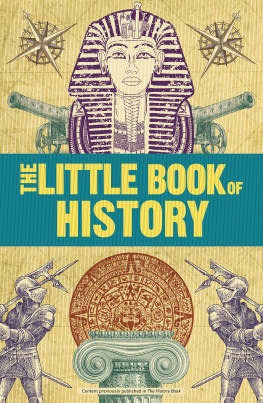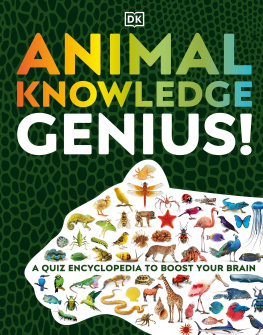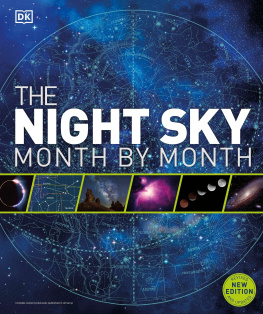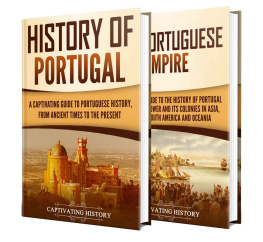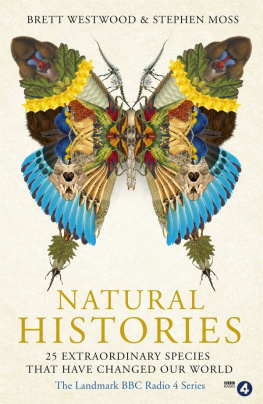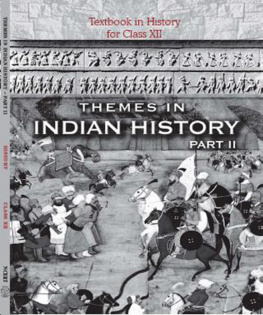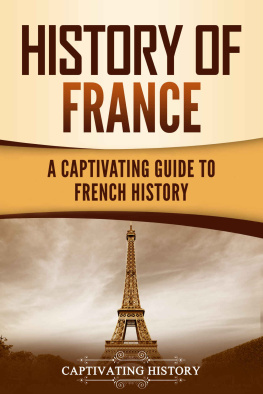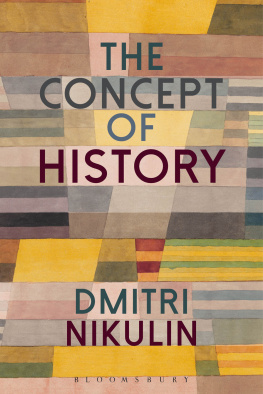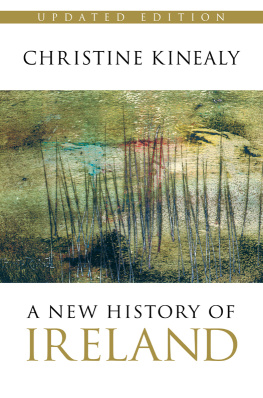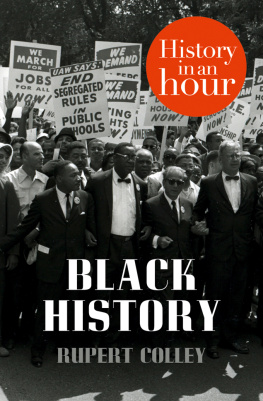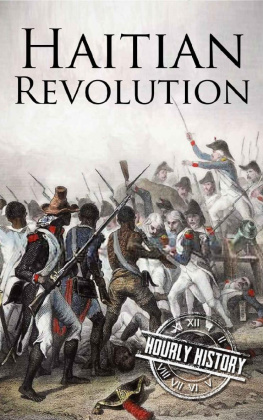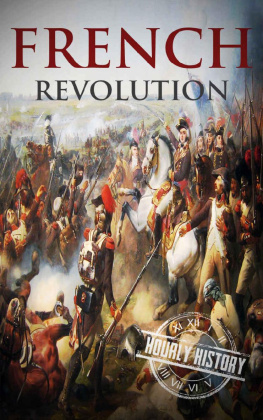DK - The Little Book of History
Here you can read online DK - The Little Book of History full text of the book (entire story) in english for free. Download pdf and epub, get meaning, cover and reviews about this ebook. year: 2021, publisher: DK Publishing, genre: History. Description of the work, (preface) as well as reviews are available. Best literature library LitArk.com created for fans of good reading and offers a wide selection of genres:
Romance novel
Science fiction
Adventure
Detective
Science
History
Home and family
Prose
Art
Politics
Computer
Non-fiction
Religion
Business
Children
Humor
Choose a favorite category and find really read worthwhile books. Enjoy immersion in the world of imagination, feel the emotions of the characters or learn something new for yourself, make an fascinating discovery.
The Little Book of History: summary, description and annotation
We offer to read an annotation, description, summary or preface (depends on what the author of the book "The Little Book of History" wrote himself). If you haven't found the necessary information about the book — write in the comments, we will try to find it.
DK: author's other books
Who wrote The Little Book of History? Find out the surname, the name of the author of the book and a list of all author's works by series.
The Little Book of History — read online for free the complete book (whole text) full work
Below is the text of the book, divided by pages. System saving the place of the last page read, allows you to conveniently read the book "The Little Book of History" online for free, without having to search again every time where you left off. Put a bookmark, and you can go to the page where you finished reading at any time.
Font size:
Interval:
Bookmark:

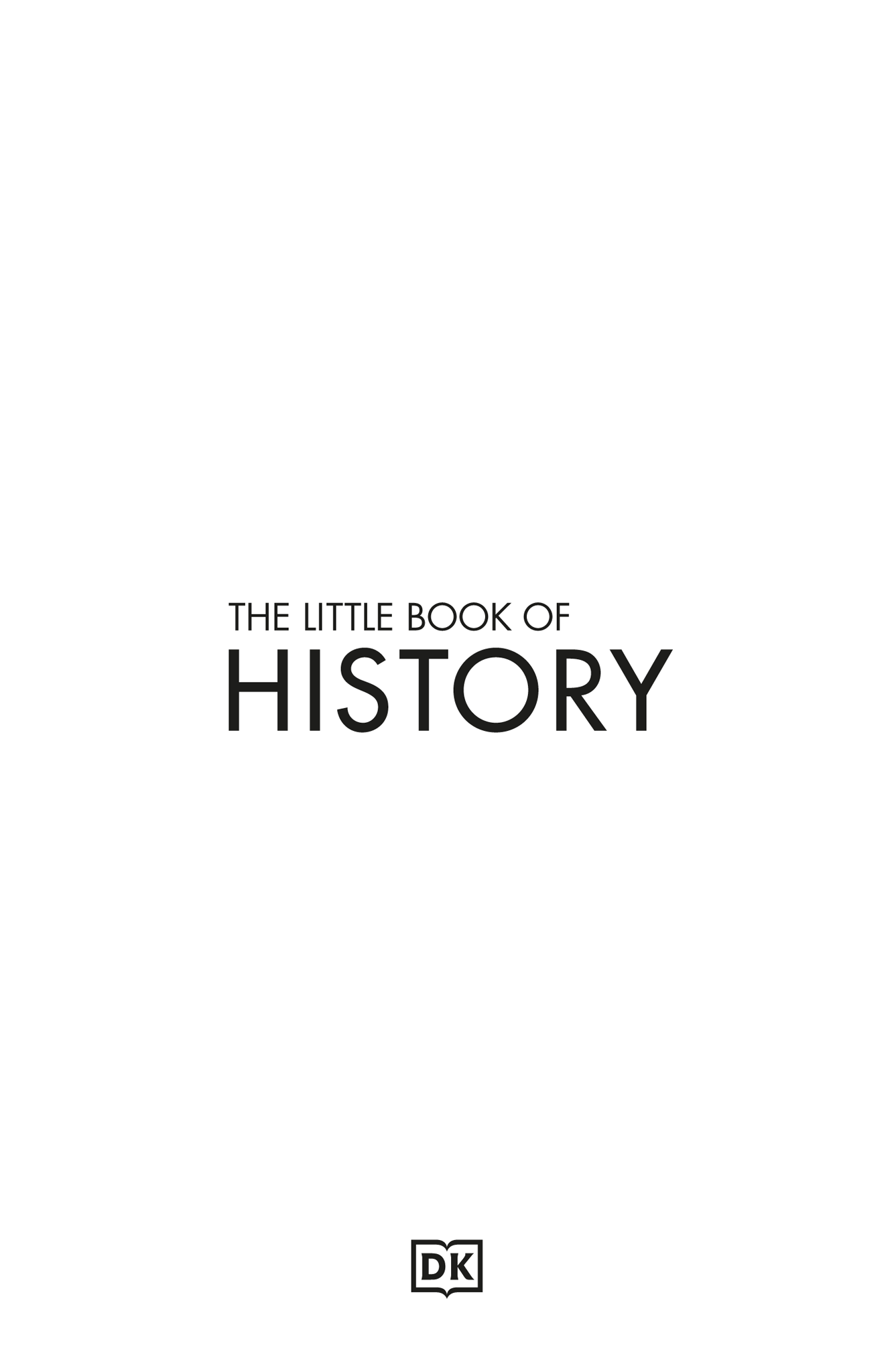
Preferred application settings
For the best reading experience, the following application settings are recommended:
- Color theme: White background
- Font size: At the smallest point size
- Orientation: Landscape(for screen sizes over 9/23cm), Portrait(for screen sizes below 9/23cm)
- Scrolling view: [OFF]
- Text alignment: Auto-justification [OFF](if the eBook reader has this feature)
- Auto-hyphenation: [OFF](if the eBook reader has this feature)
- Font style: Publisher default setting [ON](if the eBook reader has this feature)
- Images: Double tapon the images to see them in full screen and be able to zoom in on them


The ultimate aim of history is human self-knowledge. In the words of 20th-century historian R. G. Collingwood: The value of history is that it teaches us what man has done and thus what man is. We cannot hope to understand our lives without it.
History itself has a history. From earliest times, all societiesliterate or preliteratetold stories about their origins or their past, usually imaginative tales centering around the acts of gods and heroes. The first literate civilizations also kept records of the actions of their rulers, inscribed on clay tablets or on the walls of palaces and temples. But at first these ancient societies made no attempt at a systematic inquiry into the truth of the past; they did not differentiate between what had really happened and the events manifest in myth and legend.
In the 5th century BCE , the Greek writers Herodotus and Thucydides were the first to explore questions about the past through the collection and interpretation of evidencethe word history, first used by Herodotus, means inquiry in Greek. Herodotuss work still contained a considerable mixture of myth, but Thucydides account of the Peloponnesian War satisfies most criteria of modern historical study. It was based on interviews with eyewitnesses of the conflict and attributed events to human agency rather than the intervention and actions of the gods.
Thucydides had invented one of the most durable forms of history: the detailed narrative of war and political conflict, diplomacy, and decision-making. The subsequent rise of Rome to dominance of the Mediterranean world encouraged historians to develop another genre of broader scope: the account of how we got to where we are today. The Hellenic historian Polybius (200118 BCE ) and the Roman historian Livy (59 BCE 17 CE ) both sought to create a narrative of the rise of Romea big picture that would help make sense of events on a large timescale. Although restricted to the Roman world, this was the beginning of what is sometimes called universal history, which attempts to describe progress from earliest origins to the present as a story with a goal, giving the past apparent purpose and direction.
At the same period in China, historian Sima Qian (c. 14586 BCE ) was similarly tracing Chinese history over thousands of years, from the legendary Yellow Emperor (c. 2697 BCE ) to the Han dynasty under Emperor Wu (c. 109 BCE ).
As well as making sense of events through narratives, historians in the ancient world established the tradition of history as a source of moral lessons and reflections. The history writing of Livy or Tacitus (56117 CE ), for instance, was in part designed to examine the behavior of heroes and villains, meditating on the strengths and weaknesses in the characters of emperors and generals, providing exemplars for the virtuous to imitate or shun. This continues to be one of the functions of history. French chronicler Jean Froissart (13371405) said he had written his accounts of chivalrous knights fighting in the Hundred Years War so that brave men should be inspired thereby to follow such examples. Today, historical studies of Lincoln, Churchill, Gandhi, or Martin Luther King, Jr., perform the same function.
The rise of Christianity in the late Roman Empire changed the concept of history in Europe. Historical events came to be viewed by Christians as divine providence, or the working out of Gods will. Skeptical inquiry into what actually happened was usually neglected, and accounts of miracles and martyrdoms were generally accepted as true without question. The Muslim world, in this as in other ways, was frequently more sophisticated than Christendom in Medieval times, with the Arab historian Ibn Khaldun (13321406) railing against the blind, uncritical acceptance of fanciful accounts of events that could not be verified.
Neither Christian nor Muslim historians produced a work on the scale of the chronicle of Chinese history published under the Song dynasty in 1085, which recorded Chinese history spanning almost 1,400 years and filled 294 volumes.
Whatever the undoubted merits of other civilizations traditions of history writing, it was in Western Europe that modern historiography evolved. The Renaissancewhich began in Italy in the 15th century, then spread throughout Europe lasting until the end of the 16th century in some areascentered upon the rediscovery of the past. Renaissance thinkers found a fertile source of inspiration in classical antiquity, in areas as diverse as architecture, philosophy, politics, and military tactics. The humanist scholars of the Renaissance period declared history one of the principal subjects in their new educational curriculum, and the antiquary became a familiar figure in elite circles, rummaging among ancient ruins and building up collections of old coins and inscriptions. At the same time, the spread of printing made history available to a much wider audience than ever before.
By the 18th century in Europe, the methodology of historywhich consisted of ascertaining facts by criticizing and comparing historical sourceshad reached a fair level of sophistication. European thinkers had reached general agreement on the division of the past into three main periods: Ancient, Medieval, and Modern. This periodization was at root a value judgment, with the Medieval period, dominated by the Church, viewed as a time of irrationality and barbarism and separating the dignified world of the ancient civilizations from the newly emerging, rational universe of modern Europe. Enlightenment philosophers wrote histories that ridiculed the follies of the past.
In stark contrast, the Romantic movement that swept across Europe from the late 18th century found an intrinsic value in the difference between the past and the present. The Romantics drew inspiration from the Middle Ages, and instead of seeing the past as a preparation for the modern world, Romantic historians tried the imaginative exercise of entering into the spirit of past ages. Much of this was associated with nationalism. The German Romantic thinker Johann Gottfried Herder (17741803) burrowed into the past in search of roots of national identity and an authentic German spirit. As nationalism triumphed in Europe in the 19th century, much of history became a celebration of national characteristics and national heroes. Every country wanted to have its sacred heroic history, just as it had its flag and its national anthem.
Font size:
Interval:
Bookmark:
Similar books «The Little Book of History»
Look at similar books to The Little Book of History. We have selected literature similar in name and meaning in the hope of providing readers with more options to find new, interesting, not yet read works.
Discussion, reviews of the book The Little Book of History and just readers' own opinions. Leave your comments, write what you think about the work, its meaning or the main characters. Specify what exactly you liked and what you didn't like, and why you think so.

